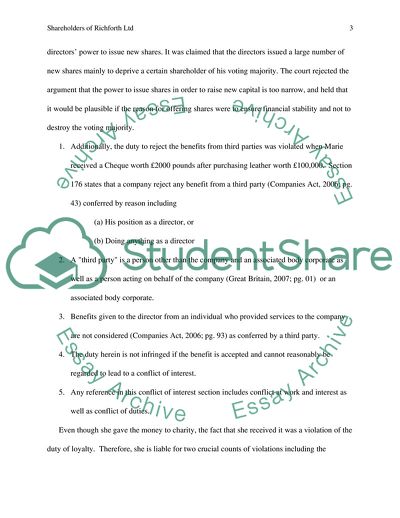Cite this document
(Shareholders of Richforth Ltd Report Example | Topics and Well Written Essays - 2000 words, n.d.)
Shareholders of Richforth Ltd Report Example | Topics and Well Written Essays - 2000 words. https://studentshare.org/law/1790327-shareholders-of-richforth-ltd
Shareholders of Richforth Ltd Report Example | Topics and Well Written Essays - 2000 words. https://studentshare.org/law/1790327-shareholders-of-richforth-ltd
(Shareholders of Richforth Ltd Report Example | Topics and Well Written Essays - 2000 Words)
Shareholders of Richforth Ltd Report Example | Topics and Well Written Essays - 2000 Words. https://studentshare.org/law/1790327-shareholders-of-richforth-ltd.
Shareholders of Richforth Ltd Report Example | Topics and Well Written Essays - 2000 Words. https://studentshare.org/law/1790327-shareholders-of-richforth-ltd.
“Shareholders of Richforth Ltd Report Example | Topics and Well Written Essays - 2000 Words”. https://studentshare.org/law/1790327-shareholders-of-richforth-ltd.


